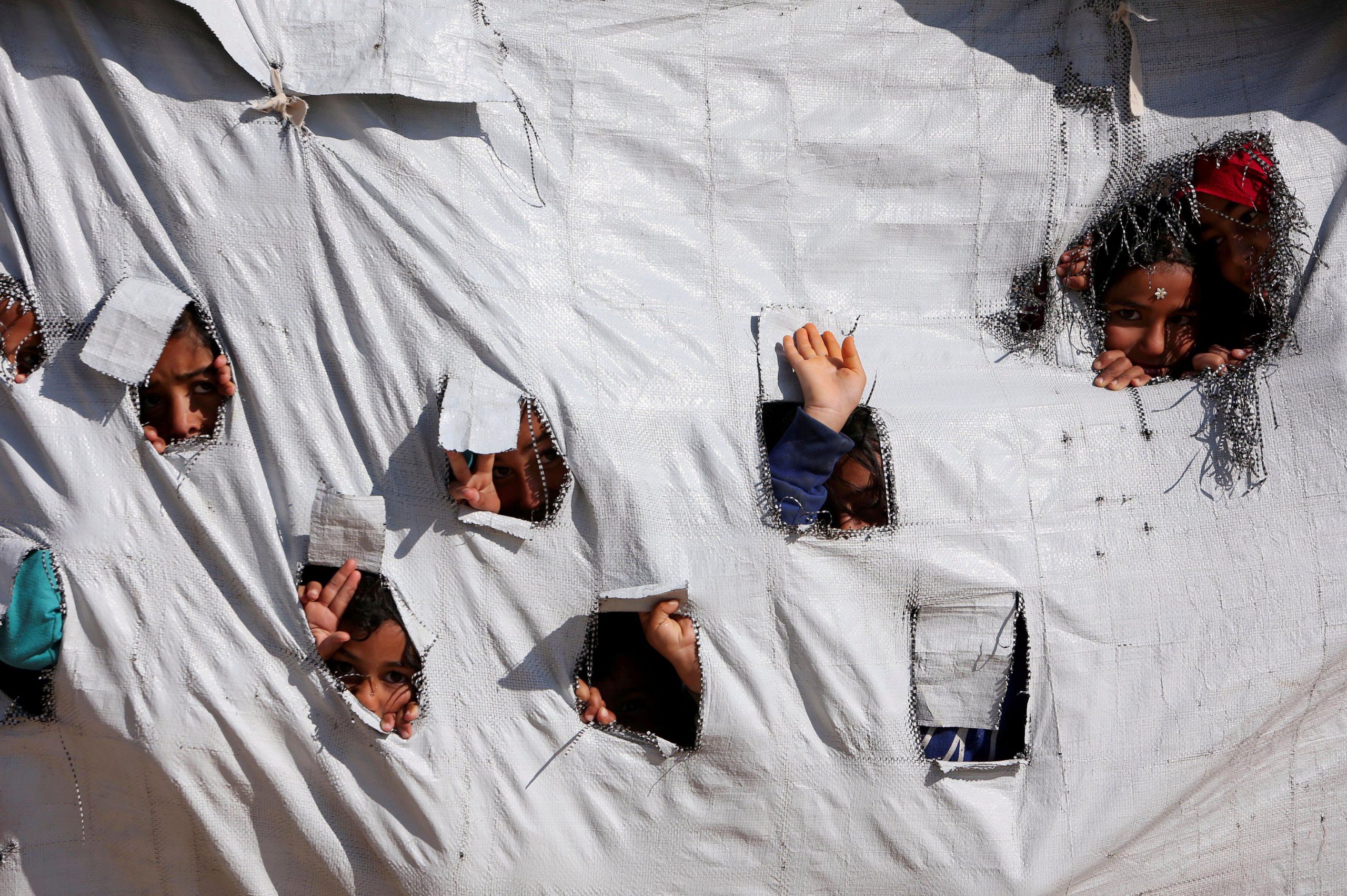UK Foreign Secretary Dominic Raab announced that a small number of British children that were orphaned during the Syria war are being repatriated. The BBC reports that the three children were handed over to a delegation from the Foreign Office, had left Syria and were “doing very well”.
There are more than 60 British children still present in northern Syria, the majority of whom are under 12 years old and are with their mothers. Another 300 children are reported to have died already this year due to poor conditions in the camps.
Background
The Foreign Office decision to repatriate comes coincidentally just days after the publication of a BBC report that uncovered the three orphaned children. Prior to this, there had been continuous indecision from the relevant UK government departments. The UK Home Office, led by Priti Patel, has been hesitant to confirm plans to repatriate any children. News reports on 16 November claimed that Patel refused to bring the children home; deeming them a security threat. Further comments from Raab refuted the claims stating that these comments were fabricated. In an interview with UK media on 16 November Raab said:
“But I do not recognise a situation where I am aware at any point the Home Secretary blocking any kind of rescue mission.”
On 21 November UK Foreign Secretary Dominic Raab confirmed that the orphaned children would be returning home:
“innocent, orphaned children should never have been subjected to the horrors of war…We have facilitated their return home, because it was the right thing to do.”
Dr Abdulkarim Omar, a foreign minister representing the Kurdish administration in the north-east of Syria, confirmed the children had been handed over to the UK Foreign Office. Reports were confirmed by his tweet:
“Today, 21 November 2019, three British orphans from ISIS parents were handed over to a delegation representing the British Foreign Ministry, headed by Mr. Martin Longden, according to an official repatriation document signed by the Selfe Administration and the British Government.”
The Kurdish authorities in charge of the area where the majority of women and children remain in the camps have been consistent in their call for international governments to repatriate their citizens. However, since the recent Turkish incursion conditions have worsened further and the need for evacuating the children has become more urgent.
International response
An International Crisis Group report of 18 November concludes that some countries have demonstrated commitment to repatriation and more than 600 people have been repatriated to over 20 countries. The US has taken steps to repatriate 18 Americans – six men, three women and nine children, and other countries that have shown strong commitment include Russia, Uzbekistan, Kosovo, Malaysia and Indonesia. Russia has gone to considerable lengths chartering flights and have brought back over 200 women and children from Syria and Iraq.
These examples demonstrate the success of repatriating and reintegrating these children back into their societies and international NGOs and charities are using these examples of success to call for continued actions from international governments.
In an exclusive interview with IOHR, Orlaith Minogue a humanitarian adviser at Save the Children told IOHR,
“Save the Children would like to see the British government take action to bring all of the children home.”
Alison Griffin, the head of humanitarian campaigns said: “We fervently hope this is just the start. There are still as many as 60 British children that remain stranded in appalling conditions and Syria’s harsh winter will soon begin to bite.”
IOHR position
IOHR believes that rights of the child must be prioritised for all children remaining in the camps and call on governments to act with urgency as part of a humanitarian response. IOHR also believes that children are innocent parties subject to the situation in which they find themselves, or were born, therefore the UK (and other governments) must:
- prioritise the rights of the child as per international law, the Convention on the Rights of the Child and the United Nations (UNCCT) guidelines,
- offer children the best chance for safety by returning them to their home country,
- ensure that all necessary national and local authority mechanisms are in place and well prepared for the return of children; guaranteeing the psychological, physical, emotional and social well-being of returning children,
- review all systems and agencies to safeguard the reintegration of these children into society.


